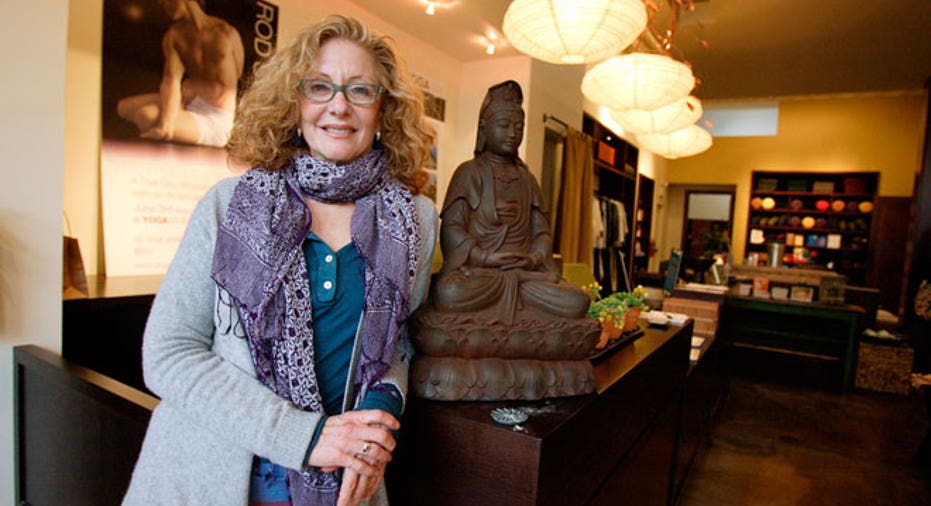Good News, Boomers: Maybe You Won't Have to Work Longer

“The Boomer” is a column written for adults nearing retirement age and those already in their “golden years.” It will also promote reader interaction by posting e-mail responses and answering reader questions. E-mail your questions or topic ideas to thefoxboomer@gmail.com.
The 2008 financial crisis that brought down the housing market and pushed the economy into a recession left a gaping hole in many baby boomers’ retirement savings.
The blow left many boomers with two options: work longer or significantly reduce their spending in retirement. But there’s good news: a new survey shows the majority of working adults aged 55 and older don’t plan on delaying retirement and say they will be financially prepared to retire when the time comes. The survey, conducted by PulteGroup, the parent company of retirement community builder Del Webb, also shows 61% of respondents plan to retire in less than 10 years-with 46% saying they will be financially able to retire in the same time period. Among this same group, 59% report they will not postpone retirement and might start it earlier.
I spoke with Deborah Meyer, senior vice president of PulteGroup and asked her the following questions about the positive results of this survey:
Boomer: Are baby boomers becoming more financially prepared for retirement than in previous years?
Meyer: Del Webb has been conducting surveys for almost 20 years, and we’ve seen through previous consumer research that baby boomers believe Social Security will no longer be a primary source of income. Combine that with the overall economic uncertainty and there was an expectation that future retirees would be delaying retirement. However, 46% of those aged 55 and older who are still working say they will be financially prepared to retire within 10 years. These results somewhat surprised us since it showed there’s increased confidence among boomers in their ability to achieve their goals in their next phase of life.
When comparing previous consumer surveys, we are seeing an upward trend in the percentage of baby boomers becoming more financially prepared for retirement. In the 2010 Del WebbBaby Boomer Survey, approximately 46% of the respondents said it would take 10-plus years before they would be financially prepared to retire, compared with only 14% of the respondents polled in this quarter’s PulteGroup Home Index Survey.
Boomer: Do you think baby boomers are going to stay closer to home in retirement compared to previous generations?
Meyer: Within this group of retired, socially-oriented consumers, the choice of where to retire varies. Some consumers will choose to retire where they currently live, and, potentially, near family and grandchildren. Alternatively, some consumers will seek warmer climates in states like Arizona and Florida.
Our studies have shown that a relatively small amount of active adult buyers are willing to relocate in retirement. There’s another group that will do that during the winter months, but will come back during summer. We found that most boomers don’t necessarily want to leave their family, church and friends--they want their community within about a 50-mile radius from where they live.
For many years, Del Webb and others in the active adult business focused on providing a retirement lifestyle in warmer climates which often required relocation. Recognizing in the last five to 10 years that many retirees want to remain connected to their families, friends and doctors, new Del Webb communities are now offered in locations not previously thought of as “retirement destinations.” Colorado, Ohio, Michigan, Indiana and Tennessee have all seen Del Webb communities open in the past few years.
Boomer: As they enter into their retirement years, do you find boomers have a desire to continue to work?
Meyer: Several decades ago, nearly 80% of our residents would be fully retired. These days we’re seeing more than 50% still engaged in the workforce on some level. They’re working part time, starting new businesses or starting a new job. An important part of well-being is to stay connected and productive. Surprisingly, even in this economic climate, their key reasons for working are not just related to finances—boomers want to stay in the mainstream and work to stay active and energized. They want to contribute to society, and being in the workforce is one way to do that.
Boomer: The survey shows that baby boomers feel much younger than they are. Why?
Meyer: Baby boomers have a much different mindset toward growing older than previous generations. Feeling older is just a state of mind for many of them – one that most have no interest in. Many consider themselves healthy and active, primed for the next part of their lives with no plans to slow down anytime soon. They want to do it all as they enter this next phase, from working longer to trying Zumba and acting classes to volunteering.
In our baby boomer survey, mental attitude, happiness and a good sense of humor were the top mentions for feeling younger. Plus, they work out regularly.
Boomer: What did you find is the key to happiness in retirement?
Meyer: While this demographic is known to be quite diverse in its wants and needs, being able to define and execute their version of retirement can lead to happiness. Here’s what we have seen in our own residents that have contributed to creating a positive retirement life:
Activities. Events like social activities, fitness programs and educational classes can keep retirees’ minds sharp and promote socialization.
Socializing. Baby boomers are a social group and conversing and laughing with old and new friends keeps them young and happy. Spending time with children and grandchildren is equally important.
Giving back. This generation is active in terms of volunteering and mentoring, which keeps them active and engaged.
Have a little attitude. Feeling older is just a state of mind. Keep an open mind, be healthy and active, and try new things. Boomers have no plans for slowing down anytime soon so approach life with some zeal.



















